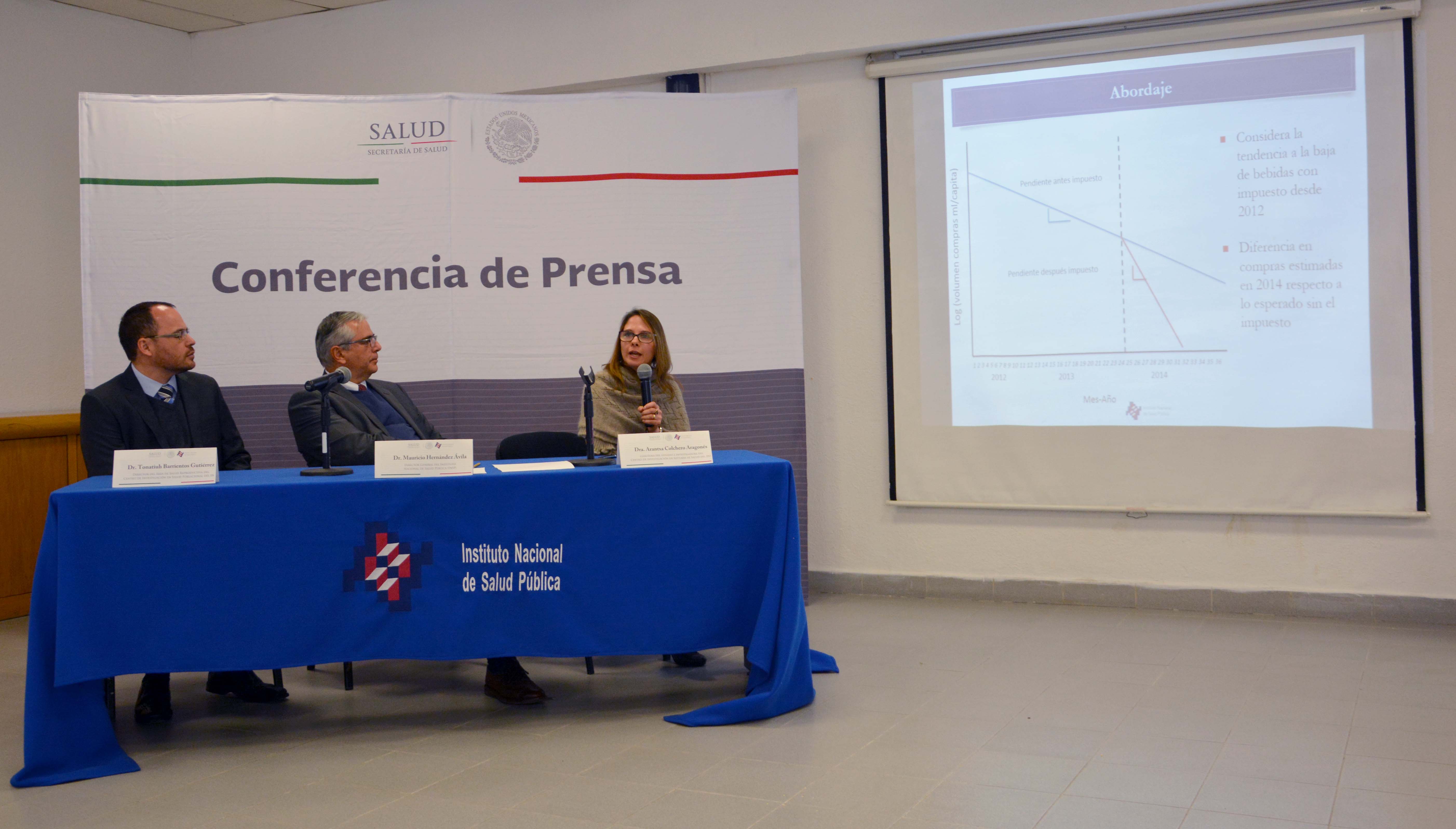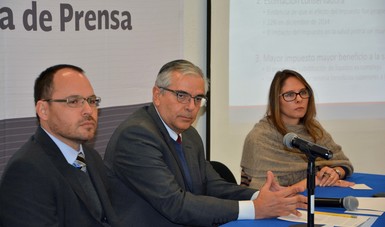
Because of the special tax on sugary drinks, Mexican people stopped drinking 4.2 liters of such beverages during 2014, revealed the study conducted by specialists from Mexico´s National Institute of Public Health (NIPH)*, which belongs to Mexico´s Ministry of Health, leaded by doctor Mercedes Juan, and the North Carolina University, in the U.S.
At a press conference, the director of Mexico´s National Institute of Public Health, Mauricio Hernandez, announced that purchases of this drinks decreased on average six percent, and in December of that year was recorded a reduction of 12 percentage points.
According to the study, the largest tax impact reported was on homes of low socioeconomic level, averaging nine percent decrease in the shopping of sugary drinks in 2014, a reduction that reached 17 percent in December.
Contradictorily, he reported that purchases of beverages with no tax, increased on average four percent, mainly due to an increase in the purchase of bottled water. "This suggests that consumers are replacing sugary drinks with healthy drinks", said doctor Mauricio Hernandez
Accompanied by doctors of Mexico´s National Institute of Public Health, Tonatiuh Barrientos Gutierrez, director of the Reproductive Health area of the Center for Population Health Research of this institute and Arantxa Colchero Aragones, author of the study and researcher at the Center for Research in Health Systems, Mauricio Hernandez noted that this analysis was performed a year after the starting of the special tax in January 2014.
He stressed that the results of the analysis of shopping of sugary drinks in Mexico, was published in the British Medical Journal, UK, one of world´s most prestigious journals in the field of health.
This is the first comprehensive study, peer-reviewed that analyses the immediate effects of the new tax on sugary drinks in Mexico.
He said that researchers at the National Institute of Public Health and the North Carolina University (University of North Carolina's Gillings School of Global Public Health and the UNC Carolina Population Center) studied the changes in purchases of beverages in households during 2014, comparing them to what was expected if the tax would not be established (based on previous trends to the implementation of the tax between 2012 and 2013).
The study was financed mainly by the support from Bloomberg Philanthropies to the NIPH and to the North Carolina University, with additional funding from the Robert Wood Johnson Foundation.
Mauricio Hernandez said that the initial results of the tax in Mexico represent a promise of success for similar measures ratified in some parts of the United States and around the world.
Dr. Tonatiuh Barrientos Gutierrez, director of the Reproductive Health area of the Center for Population Health Research of NIPH, presented preliminary results of the study in conjunction with the Michigan University, about the health impact of this reduction in sugary drinks.
For overweight and obesity in the general adult population, would be expected a reduction of 183 thousand cases of obesity, 114 thousand of overweight, which would translate into an increase of 297 thousand people in a normal body weight.
In the case of diabetes, estimates that for 2030 our country will have 17 million people with this disease. However, with the implementation of the tax are expected 16.6 million cases; which means a reduction of 400 thousand cases of diabetes diagnosed.
Should be noted that the prevalence of overweight and obesity in adults is 71.3 percent, and 30 percent in children; in addition, nine of every 100 Mexican adults have diabetes, according to the National Health and Nutrition Quiz 2012.
Overweight and obesity have caused a significant increase in the prevalence of chronic non-communicable diseases such as diabetes, hypertension and cancer. In 2013, the leading causes of death were cardiovascular diseases and diabetes.
Mexican population consume, on average, 163 liters of sugary drinks a year. Between 1989 and 2006, the per capita consumption of soft drinks increased a 60 percent.
Mexico´s National Institute of Public Health is recognized as an academic institution that combines excellence in research with the operation of a prestigious high-level graduate program.
The Institute has made important contributions to public health in Mexico in areas such as cancer epidemiology, reproductive and environmental health, vector control and infectious diseases, nutrition, among others.
Today, one of the priority public health problems in Mexico is overweight and obesity, particularly in children, this becomes one of the outstanding challenges of Mexico´s National Institute of Public Health.
Follow us on Twitter: @SSalud_mx y @_MJuan_
Facebook: facebook.com/SecretariadeSaludMX
